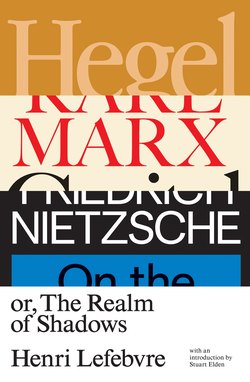Hegel, Marx, Nietzsche

Реклама. ООО «ЛитРес», ИНН: 7719571260.
Оглавление
Henri Lefebvre. Hegel, Marx, Nietzsche
Hegel, Marx, Nietzsche,
Отрывок из книги
or, The Realm of Shadows
Henri Lefebvre
.....
Nietzschean overcoming (Überwinden) differs radically from Hegelian and Marxian Aufheben. It does not preserve anything, it does not carry its antecedents and preconditions to a higher level. It casts them into nothingness. Subversive rather than revolutionary, Überwinden overcomes by destroying, or rather by leading to its self-destruction that which it replaces. This is how Nietzsche sought to overcome both the European assertion of logos and its opposite obverse side, nihilism. Is it necessary to add that this heroic struggle against Judeo-Christian nihilism on behalf of and through carnal life has nothing in common with hedonism? There is a triad (three terms), but in the course of the struggle what is born casts the other terms into nothingness (sends them zu Grunde, as Heidegger would say), with the result that they then appear as ‘foundations’, depths. Dialectical? Yes, but radically different from either the Hegelian or the Marxist dialectic. By the role, the import, the meaning of the negative. By the intensity of the tragic.
7) Do we now, in the second half of the twentieth century, possess all the elements of a vast confrontation, all the pieces of a great trial (in which all that remains is to denote accusers and accused, witnesses, judges, lawyers)? No. The files are incomplete, by a long way.
.....